The Role of Business Computer Security Features in Protecting Your Data
Quick Listen:
Data is the lifeblood of organizations financial records, customer profiles, and proprietary innovations are all digital treasures under constant siege. The World Economic Forum projects that by 2025, a staggering 463 exabytes of data will be generated daily worldwide equivalent to 463 billion gigabytes, enough to overwhelm even the most robust storage systems. Yet, with this deluge of data comes an equally relentless wave of cyber threats. Hackers no longer lurk in the shadows of science fiction; they exploit vulnerabilities in everything from laptops to network servers, making endpoint security a critical shield. Business computers desktops, laptops, and peripherals are now fortified with advanced security features, transforming them into the frontline defenders of enterprise data in a high-stakes digital war.
Fortifying the Digital Frontlines: How Business Computer Security Features Protect Critical Data
Far from being mere productivity tools, modern business computers are engineered to combat sophisticated cyber threats. The global data protection market, valued at $150.38 billion in 2024, is set to soar to $505.98 billion by 2032, growing at a 16.6% CAGR, with North America commanding a 32.7% share last year. This explosive growth underscores the pivotal role of secure hardware in safeguarding sensitive information. From hardware-rooted encryption to biometric authentication, these devices are redefining enterprise security, offering robust defenses against the rising tide of cyberattacks that threaten financial ruin and reputational damage.
A New Era of Hardware Security
The security landscape for business computers has evolved dramatically, moving beyond software patches to hardware-based fortifications. Central to this shift is the Trusted Platform Module (TPM), a specialized chip that securely stores encryption keys, passwords, and certificates, providing a tamper-resistant foundation. Coupled with Secure Boot, which ensures only verified software runs at startup, these systems are locked down from the moment they power on. Technologies like Intel vPro and AMD PRO enhance this with remote management capabilities, enabling IT teams to oversee distributed workforces with ease. These features create a resilient barrier, addressing the growing complexity of threats in a world where cybersecurity spending reached $268.13 billion in 2024 and is projected to hit $878.48 billion by 2034, growing at a 12.6% CAGR.
Biometric authentication is another game-changer. Fingerprint scanners and infrared facial recognition, now standard on many business-class devices from Dell, HP, and Lenovo, eliminate the vulnerabilities of traditional passwords. These biological signatures are nearly impossible to replicate, offering a seamless yet secure login experience. Meanwhile, AI-driven threat detection embedded in firmware and BIOS actively monitors for suspicious activity, neutralizing risks before they escalate. As cyberattacks grow in sophistication and impact, these hardware-level defenses are becoming indispensable for enterprises aiming to stay ahead of the curve.
Industry Applications: Security in Action
Across sectors, organizations are harnessing these advanced features to meet rigorous compliance demands. Financial institutions leverage encrypted SSDs and BIOS lockdown tools to adhere to PCI DSS standards, protecting sensitive payment data. Government agencies mandate FIPS 140-2 certified endpoints to ensure cryptographic modules meet federal requirements. In healthcare, HIPAA-compliant systems with multi-factor authentication and biometrics safeguard patient records, from medical histories to billing details. These industries rely on tailored solutions from leading manufacturers: Dell's Latitude series integrates endpoint detection tools, HP's EliteBooks offer remote management for hybrid teams, and Lenovo's ThinkPads feature self-healing BIOS to recover from firmware attacks. These devices aren't just computers they're purpose-built security platforms designed to keep critical operations secure.
The need for such robust protection is driven by the sheer volume of data businesses handle. As industries like finance, retail, and IT generate ever-larger datasets, the data protection market is expected to exceed $1.12 trillion by 2037, with a 16.2% CAGR from 2025 to 2037. This growth reflects the urgent need to secure both organizational and customer data amid ongoing digital transformation, making hardware security a cornerstone of compliance and trust.
Persistent Challenges: The Limits of Hardware Defenses
Despite these advancements, vulnerabilities persist. Legacy systems, common in many organizations, struggle to integrate with modern security protocols, creating gaps that hackers can exploit. Human factors also pose risks: employees often resist multi-factor authentication or biometric tools, citing inconvenience, which can undermine even the strongest defenses. Insider threats are another concern. A 2022 data-centric security report valued the market at $4.28 billion, projecting a 24.2% CAGR through 2030, and highlighted how employees with access to sensitive systems can inadvertently or intentionally leak data to unauthorized parties, increasing the risk of breaches.
Physical security remains a weak point as well. A stolen device, even one equipped with a TPM chip, can still be compromised if software updates or policies are neglected. Over-reliance on hardware defenses without a comprehensive strategy encompassing regular patching, user education, and robust policies can foster a dangerous sense of complacency. Security is not a one-and-done solution but a layered effort requiring constant vigilance.
The Business Case: Investing in Secure Hardware
The argument for secure business computers is airtight. Beyond mitigating the devastating costs of data breaches, these devices streamline IT operations. Remote management tools allow administrators to deploy updates, enforce policies, and respond to threats without physical access, a critical advantage in hybrid work environments. Compliance with regulations like GDPR, HIPAA, or CMMC is simplified when hardware is designed with these standards in mind. For employees, seamless security features like a quick fingerprint scan instead of a complex password enhance productivity while maintaining robust protection.
The financial benefits are equally compelling. As data breaches become more costly, the investment in secure hardware delivers significant returns. By prioritizing devices with built-in security, businesses position themselves for resilience in a digital landscape where a single breach can devastate both finances and reputation. The projected growth of the data protection market to $1.12 trillion by 2037 underscores the long-term value of these investments, making them a strategic imperative for forward-thinking organizations.
The Horizon: What's Next for Endpoint Security
The future of business computer security is brimming with potential. Experts highlight quantum-safe encryption as a transformative development, preparing devices for a time when quantum computing could render current algorithms obsolete. Secure supply chains are also under scrutiny, as vulnerabilities in hardware components, such as unverified microchips, pose increasing risks. The rise of device-as-a-service (DaaS) models offers another promising avenue, embedding security updates and lifecycle management into subscription-based hardware, simplifying IT operations for businesses of all sizes.
As cybersecurity becomes a key differentiator in B2B tech procurement, enterprises are prioritizing vendors that deliver not just performance but trust. The cybersecurity market's projected growth to $878.48 billion by 2034 reflects this shift, with organizations seeking partners that can provide comprehensive, future-ready solutions. In this evolving landscape, secure hardware is no longer a luxury it's a competitive edge.
Building an Unbreachable Fortress
In an era where data is both a strategic asset and a prime target, business computers stand as the first line of defense. From TPM chips to biometric authentication, these devices are engineered to meet the demands of a volatile digital world. Yet their strength lies in their integration with broader security frameworks policies, training, and software working in unison. IT leaders must assess their current infrastructure and align with vendors offering scalable, compliant solutions. With cyber threats escalating, investing in secure hardware is not just a prudent choice it's the foundation of survival in the digital age.
Frequently Asked Questions
What are the most important security features in business computers?
The most critical security features include Trusted Platform Module (TPM) chips for secure storage of encryption keys, Secure Boot technology to verify software integrity at startup, and biometric authentication like fingerprint scanners and facial recognition. Additionally, AI-driven threat detection embedded in firmware and remote management capabilities through technologies like Intel vPro and AMD PRO provide comprehensive protection against modern cyber threats.
How do hardware-based security features protect business data better than software solutions?
Hardware-based security creates a tamper-resistant foundation that's much harder for cybercriminals to compromise compared to software-only solutions. Features like TPM chips physically store encryption keys and certificates in secure hardware, while Secure Boot ensures only verified software runs from startup. This hardware-level protection works even before the operating system loads, providing a robust first line of defense that software patches alone cannot match.
What industries benefit most from advanced business computer security features?
Financial institutions, healthcare organizations, and government agencies see the greatest benefits due to strict compliance requirements. Financial companies use encrypted SSDs and BIOS lockdown tools for PCI DSS compliance, healthcare organizations rely on HIPAA-compliant systems with multi-factor authentication to protect patient records, and government agencies require FIPS 140-2 certified endpoints for federal security standards. These industries handle highly sensitive data that demands the strongest possible protection.
Disclaimer: The above helpful resources content contains personal opinions and experiences. The information provided is for general knowledge and does not constitute professional advice.
You may also be interested in: Best Practices for Scaling Wi-Fi in Multi-Office Enterprises Eye-In
Struggling with fragmented IT procurement that delays projects and spikes costs? Since 2003, Eye-In Technologies has streamlined tech sourcing with 10,000+ trusted products from Lenovo, Samsung, and more. Our intuitive platform and expert-curated solutions, like digital signage and WiFi, optimize workflows for enterprises. Source smarter, cut expenses, and boost efficiency with competitive pricing. Shop Now!
Powered by flareAI.co





